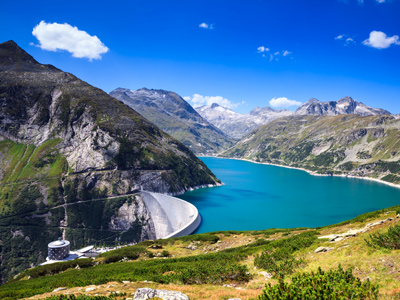
Hydroelectric Power
Hydroelectric power is a topic that you study in relation to several sections of your geography GCSE and also in different subjects, for example science. You need to know about it in the context of land use (e.g. how we use fold mountains), renewable energy sources and also the hydrological cycle (e.g. dam building). It is useful to know and understand the factors that influence the siting of hydroelectric power plants and the conflicts these schemes create as well as the basics of how it works.
Hydroelectric power generates electricity from flowing water. The energy it produces is clean, in other words, no waste materials, greenhouse gases or other pollutants are produced as the electricity is generated. It is possible to generate small amounts of electricity from the water flowing along a river or stream, however, commercial power plants work by storing water behind a dam in a reservoir.
Ready for more?
not all...
quizzers. Try to win a coveted spot on our Hall of Fame Page.







